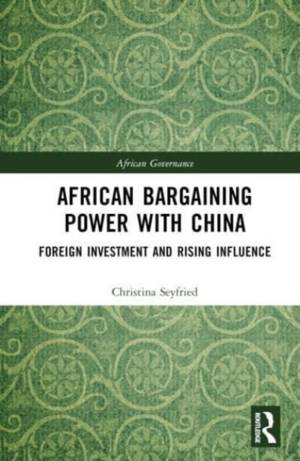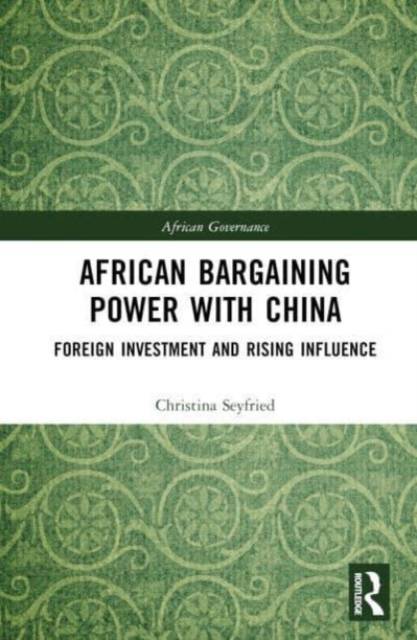
- Retrait gratuit dans votre magasin Club
- 7.000.000 titres dans notre catalogue
- Payer en toute sécurité
- Toujours un magasin près de chez vous
- Retrait gratuit dans votre magasin Club
- 7.000.000 titres dans notre catalogue
- Payer en toute sécurité
- Toujours un magasin près de chez vous
Description
This book provides a detailed account of the political economy around investment deal negotiations between African governments and private Chinese investors.
The book draws on evidence from experiments and hundreds of interviews with policy makers and Chinese investors across Nigeria, South Africa, Kenya, Ethiopia and Tanzania. It shows that governments of authoritarian or one-party dominant states, which are among the top-receivers of Chinese investments, are able to easily and successfully act collectively to impose human capital and technology transfer requirements. The book argues that, rather than treating African countries as "price-takers" in the face of increasing Chinese influence in the continent, we should instead recognise the significant bargaining leverage that many African governments have to influence deal conditions, especially with smaller private Chinese companies. It demonstrates that several African governments can instead act "as price-setters" and that the success of the rising Chinese presence in Africa, and whether this leads to positive or negative development outcomes, fundamentally depends on the development strategies that individual African governments decide on.
In the context of an often-polarised debate, the original research presented in this book has important implications for the future economic development strategies of African countries. As such, it will be of interest to researchers working on Chinese and African investment, politics, institutions, business, economics, and international relations.
Spécifications
Parties prenantes
- Auteur(s) :
- Editeur:
Contenu
- Nombre de pages :
- 200
- Langue:
- Anglais
- Collection :
Caractéristiques
- EAN:
- 9781032312491
- Date de parution :
- 26-06-23
- Format:
- Livre relié
- Format numérique:
- Genaaid
- Dimensions :
- 156 mm x 234 mm
- Poids :
- 521 g







